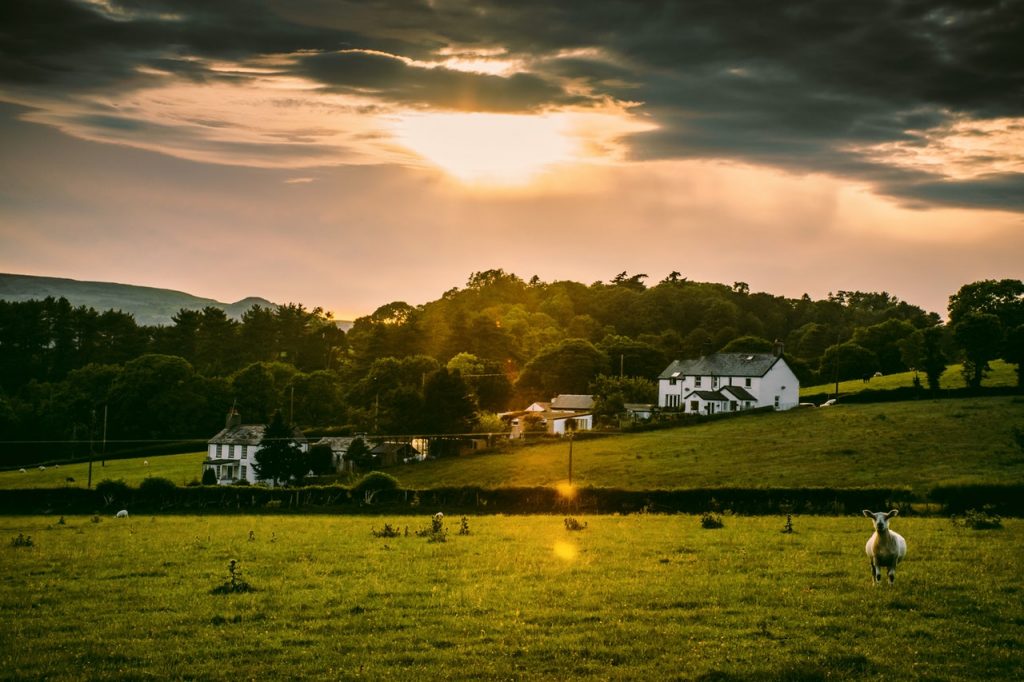A quick tip glossary for smallholders in the UK considering…registration
Registering a smallholding in the UK could mean many things.
Typically, however, the phrase is primarily used for registering your land for a County Parish Holding (CPH) Number.
[A] “What is a CPH number and does my smallholding need one?”
According to UK law, you must have a CPH number for your land if you keep livestock, which by definition includes:
- bovine animals (cattle, bison and buffalo)
- pigs
- goats
- sheep
- deer
- poultry (…if you have 50 or more birds)
…UK law forces this regardless of whether you hold the livestock for business purposes, or as pets.
For further information on CPH number registration: .GOV.UK – Register land you use to keep livestock
[B] “What is the RPA and does my smallholding need to register?”
Registering your farm for receiving farm subsidy payments, such as the old Single Payments Scheme, current Basic Payment Scheme, is handled by the Government’s Rural Payments Agency.
This agency is responsible for distributing the entitlements of UK farmers to centralised farm funding.
Who’s the Basic Payment Scheme for?
Farmers with at least 5 hectares of agricultural land and 5 ‘entitlements’ can apply. Some businesses aren’t allowed to claim if they carry out certain business activities.
Farmers who claimed the old Single Payment Scheme were invited to apply in 2015, but if you’re new to farming you might be able to get it as well. If you’re under 40, you might even be able to get extra money too.
In 2003, the RPA also became amalgamated with Cattle Tracing System (CTS) and assumed it’s responsibility to…
“…register of births, deaths and movements of cattle to be used for animal health purposes; issues cattle passports; and records where individual cattle are…” – Wikipedia
For further information on BPS, RPA or SPS (now redundant)
[C] “Does my smallholding business need to register for VAT?”
“You must register your business for VAT with HM Revenue and Customs (HMRC) if its VAT taxable turnover is more than £85,000.” – .GOV.UK
If your smallholding business does not meet the threshold for VAT registration, there is an alternative for a flat-rate taxation scheme called, Agricultural Flat Rate Scheme.
“Rules for joining the scheme
To join you must:
(a) be in business as a farmer supplying goods, or goods and services (but not services alone), which qualify for inclusion in the scheme, for details of these see Section 3.
(b) cancel your VAT registration, if you are currently registered. You can only do this if your turnover for non-farming goods and services is below the VAT registration threshold.
(c) in the 3 years before your application not have been convicted of any offence in connection with VAT or have been penalised for any kind of VAT offence under Section 152 of the Customs and Excise Management Act 1979, or been assessed to a penalty under Section 60 of the VAT Act 1994.” – .GOV.UK
For further information on the AFR Scheme: Find out more
The round up…
Ultimately, the issue of smallholding registration needs definition.
Specifically, it could mean: payment, taxation, livestock registration or something other.
Some schemes, like Single Payment Scheme are even now redundant in the UK.
Whilst this introduction article barely scrapes the surface on technicality, we hope it suffices the job of introducing you to the concept of smallholding registration – which in itself is not precise.
Do you have experience of registering your smallholding with an agency for any purpose?
Share your thoughts below.
